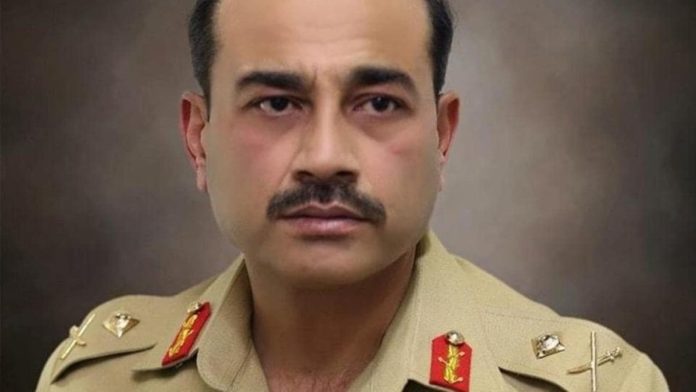Prime Minister Shehbaz Sharif today appointed Lt Gen Asim Munir, a former chief of the Inter-Services Intelligence (ISI), as the new chief of the Pakistan Army, the successor to Gen Qamar Jawed Bajwa. While he has an anti-India reputation, sources in the Indian establishment do not see the need for a recalibration of New Delhi’s approach to Islamabad in light of Thursday’s development.
Pakistan’s Information Minister Marriyum Aurangzeb made the announcement on Twitter in Urdu (translated). “Pakistan PM Muhammad Shahbaz Sharif has decided to appoint Lt Gen Sahir Shamshad Mirza as the Chairman of the Joint Chiefs of Staff [Committee] and Lt Gen Syed Asim Munir as the Chief of the Army Staff using the constitutional authority.”
Further, a summary of the formal proposal of the appointment was sent to President Arif Alvi who was appointed by former premier Imran Khan. He belongs to the Imran Khan-led Pakistan Tehreek-e-Insaf (PTI).
On receiving the proposal, the PTI in a tweet wrote that the president would act “according to the Constitution and laws” in the matter of the army chief’s appointment. Former PM Khan also claimed on Wednesday that the president will “definitely consult him” on the appointment of the next army chief.
Two reasons that made Pakistan pick Asim Munir
First, Lt Gen Asim Munir was a part of a group of decision-makers that managed the western neighbour’s India policy during the terrorist attack in Pulwama, Jammu and Kashmir, and also the period after that when the Islamic Republic retaliated with an airstrike on Balakot, a hideout of Jaish-e-Mohammed militants that had carried out the terrorist attack.
Beginning his career at the Officers’ Training School in Mangla, Pakistan, Asim Munir has been a part of the Pakistani espionage force for years on end. Before joining the ISI, he was with the Military Intelligence (MI). His known anti-India stance made him a favourite of the hawks in Rawalpindi.
The second reason is more political. While Imran Khan had brought Asim Munir to the intelligence network, the former prime minister of Pakistan also removed him from the position. During a crucial meeting at the time, Asim Munir reportedly angered Imran Khan by saying that the government needed to take the leader of the opposition into confidence so that there was unity among political parties, sources said.
Asim Munir from the Frontier Force Regiment has had stints heading both the ISI (in 2019) and MI (2016-2018). Khan removed him as ISI chief after a brief stint, as his no-nonsense attitude and by-the-books approach did not go down well with Imran Khan.
A section of the ruling PML(N) wanted to see Asim Munir promoted to the post of army chief, as it believes he can stand up to Khan, sources in the party said. As PTI and PML(N) are mutual rivals, the officer’s bad blood with Khan suits the current ruling party.
How brazenly Asim Munir, Mirza were favoured
Asim Munir was set to retire on 27 November, two days before Gen Bajwa completes an extended tenure of almost six years. Yet the old man was chosen out of the six generals who were in the race for the top post.
Lt Gen Mirza was tipped for the post of chairman of the joint chiefs of staff committee even while his name was considered for the post of the army chief. He has, of course, considerable expertise in dealing with matters related to India following his stints as director general of military operations during 2015-18 and chief of general staff during 2019-21, and his current stint as commander of X Corps, the Rawalpindi-based formation that oversees operations in parts of Kashmir.
Is the world taking note?
Yes, as explained last week on Sirf News, the West sees the Pakistan Army chief play a key role in managing the risks of conflict with “nuclear-armed” rival India on its eastern border while dealing with potential instability and friction with Afghanistan on its western frontier. It was witnessed during every India-Pakistan war or even skirmish since the 1999 Kargil War — a year after India tested five nuclear devices while Pakistan flexed its muscles by testing already-tested Chinese nuclear bombs — that a paranoid West assumed both sides could drop nuclear bombs on each other. The Western media uses the cliche “nuclear flashpoint” to describe India-Pakistan clashes, much as neither side has seriously considered it and India follows a “no first use” policy.
Besides, many world capitals, including Washington and Beijing, have direct ties with Pakistan’s military, given the country’s strategic location in a volatile neighbourhood, and a coastline close to major shipping lanes serving the oil-rich Gulf countries.
Foreign governments have periodically questioned the safety of a nuclear arsenal, that includes long-range missiles, in a country so frequently needing IMF bailouts and were anti-Western and anti-India militant groups have proliferated.
And internal security has been a near-constant problem due to insurgencies in ethnic Pashtun and Baloch regions.
Despite all the risks, Pakistan and its military have dismissed foreigners’ concerns over the command and control, and security of its nuclear weapons.
If the world is concerned, why shouldn’t India be?
That Asim Munir has known anti-India antecedents should not bother India as the entire Pakistani establishment has been hostile towards India since the Islamic country was carved out of the larger country in 1947 on the basis of Islamic phobia about Hindus. Equally or more importantly, Pakistan Army is the de facto ruler of that country, notwithstanding the ‘democratically elected’ governments formed off and on.
While Gen Zia ul Haq hanging Zulfiqar Ali Bhutto marks the worst example of military autocracy in Pakistan, in the recent past, Gen Pervez Musharraf, who had been brought in by Nawaz Sharif, proved the nemesis of the career of the political backer. Musharraf himself was no longer dear to the army he had once led after he relinquished power.
Then, when Pakistan Army liked Khan, he rose to the post of prime minister. When the former cricketer’s relationship with the army soured, he had to go. Now the army backs the nominal government of Shehbaz Sharif that cannot last if ever he decides to curtail the powers of generals.
Dealing with military rulers, elected prime ministers and such prime ministers with hawkish generals makes no difference to India. After all, the final authority remains vested in the army. It has been so since barely 11 years after Pakistan’s formation.
Military coups or martial laws in Pakistan began in 1958. There have been numerous successful attempts since 1951. Since its creation in 1947, Pakistan has spent several decades under military rule (1958-1971, 1977-1988, 1999-2008).
The Rawalpindi command of the Pakistan Army was allegedly involved in all the martial laws or military takeovers violating the constitution and destroying the democratic system in the country. Rawalpindi had previously lacked military experience as it was a small town before the British Raj period. The Pakistan Army is divided into several Corps or Commands based in different major cities. There was not much evidence of the involvement of any other corps in the military takeovers. But these are minutiae.
The Rawalpindi command was involved also in the assassinations of former Prime Ministers Benazir Bhutto in 2007 and Liaquat Ali Khan in 1951 in Rawalpindi. And the Lal Masjid incident in which more than 100 students were killed near the holy place of a mosque.
The 1999-2008 military rule was the most destructive one when Pakistan unnecessarily allied in the war on terror which resulted in a total of more than 80,000 casualties of Pakistani nationals including security forces and civilians. Financial losses were estimated at trillions of Pakistani rupees.
Yet, Pakistan remains a country where even groceries in civilian households arrive from cantonments and no citizen revolts against the arrangement. Lt Gen Asim Munir did not make this system of Pakistan. He is merely a product thereof.




You must log in to post a comment.